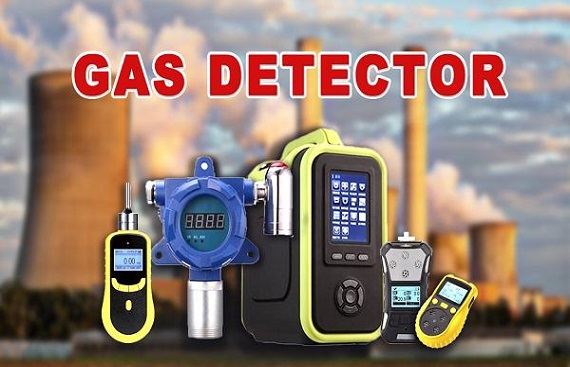Top Tips For Choosing The Right Gas Detector Of 2023

A gas detector is essential for your safety if you work in a field where potentially hazardous chemicals are used. Gas leaks can be odorless and unseen, making them difficult to detect without a gas detector. A gas detector can assist you in detecting the presence of gases and taking the necessary precautions to protect yourself and others, as exposure to certain gases can be dangerous or even fatal. Finally, a gas detector can save lives by alerting you to the presence of hazardous gases in your workplace
A gas detector can help keep you safe if you work in the oil and gas industry, construction, mining, or any other industry where potentially hazardous chemicals are present. This buying guide will cover everything you need to know before purchasing a gas detector, such as the various types of gas detectors available, features to look for, and tips on how to use and maintain your gas detector.
Types of Gas Detectors
There are two main types of gas detectors: fixed gas detectors and portable ones.
Fixed gas detectors are often put in a specific spot to detect the presence of gases in wide regions. On the other hand, portable gas detectors are made to be carried about and are perfect for workers who must move around and check the quantity of gas in various locations.
Within the portable gas detector category, different types of detectors are designed to detect different types of gases. Here are some of the most common types of gas detectors:
- Single-gas detectors: As the name suggests, these detectors are designed to detect one type of gas. They are typically smaller and more affordable than multi-gas detectors.
- Multi-gas detectors: These detectors can detect multiple gases and are ideal for workers who may be exposed to a variety of gases in their work environment.
- PID detectors: These detectors use a photoionization detector (PID) to detect volatile organic compounds (VOCs) and other gases that may not be detected by other types of detectors.
Deciding whether to buy or hire a gas detector depends on several factors. If you need a gas detector for short-term use, renting one may be a more cost-effective option. On the other hand, if you will be using the detector frequently, it may be more cost-effective to buy one.
Here are some factors to consider when deciding whether to buy or hire a gas detector:
Frequency of use: If you need a gas detector for daily use, it may be more cost-effective to purchase one. However, if you only need a detector for occasional use, renting one may be a better option.
Cost: Gas detectors can range in price from a few hundred dollars to thousands of dollars. If you only need a detector for a short period, renting one may be more cost-effective than buying one outright.
Maintenance: Gas detectors require regular calibration and maintenance to ensure accurate readings. If you purchase a detector, you will need to take care of these maintenance tasks yourself. If you rent a detector, the rental company will usually handle maintenance and calibration.
Now that you know whether you are going to buy or rent one for yourself, something that should be looked at in the feature. Let's see what needs to be observed.
When choosing a gas detector, there are several features to consider:
Sensor type: Which gases the detector can detect depends on the sort of sensor it uses. Be sure the detector you choose is competent to identify the gases you will probably encounter at work.
Battery life: Long-term savings in time and money come from a gas detector's need for less frequent charging or battery replacement.
Alarm type: Choose a gas detector with vibration alerts for usage in noisy areas, as well as audible and visible alarms.
Data logging: Some gas detectors come with data logging capabilities, which can be useful for tracking gas levels over time.
Durability: A gas detector that is built to withstand harsh environments and rough handling will last longer and be more reliable.
Tips for Using and Maintaining Your Gas Detector
Once you've chosen a gas detector, it's important to use and maintain it properly to ensure it works correctly and keeps you safe. Here are some tips for using and maintaining your gas detector:
- Read the user manual: Before using your gas detector, read the user manual carefully to ensure you understand how to use it properly.
- Calibrate the detector regularly: Gas detectors need to be calibrated regularly to ensure accurate readings. Follow the manufacturer's instructions for calibration, and make sure to calibrate the detector before each use.
- Test the detector before each use: Before using the detector, perform a bump test to ensure it is working properly. A bump test involves exposing the detector to a known concentration of gas to ensure it triggers the alarm.
- Store the detector properly: When not in use, store the detector in a cool, dry place away from direct sunlight.
- Replace sensors as needed: Gas detector sensors may need to be replaced periodically, depending on the manufacturer's recommendations and the frequency of use.
Conclusion
A gas detector is a must-have piece of equipment for anyone who works in an environment where there is a risk of gas leaks or exposure. When are you going to buy one now that you've learned the fundamentals?
